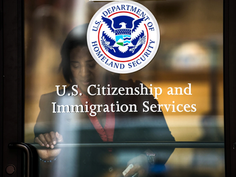Recent Developments on the Taiwan Issue
- Chethana Janith

- Dec 12, 2024
- 5 min read
Chethana Janith, Jadetimes Staff
C. Janith is a Jadetimes news reporter covering science and geopolitics.
The development of the Taiwan issue, which remains one of the most serious challenges to global stability, has recently been marked by a number of notable events in the island’s foreign and domestic policy alike.

Taiwan in the foreign policy arena
The last months of 2024 have seen increased foreign policy activity by Taiwan’s president and government, in line with the general course of the Democratic Progressive Party, which has been in power without interruption since 2016. Moreover, out of almost the two hundred countries in the world today (the basis for which status is their membership of the UN), only 12 recognize Taiwan as an equal. Of these, the largest are Guatemala and Paraguay (with populations of approximately 20 and 10 million respectively). The others are mostly tiny states, three of which (the Marshall Islands, Tuvalu and Palau), located in the Pacific Ocean basin, were visited by Taiwanese President William Lai on December 1 during a week-long tour.
As was to be expected the People’s Republic of China reacted negatively to this foreign policy initiative by the leadership of what it sees as the “rebellious province,” and particularly to the fact that the China Airlines airliner carrying William Lai also stopped off at Guam, an “unincorporated territory” of the United States and Hawaii, the 50th US state. It should be noted that this is by no means the first time that Taiwanese leaders have taken such provocative “liberties” in their dealings with Beijing. A year ago, William Lai, then Vice President, took the opportunity to “stop off in the USA” on his way to Paraguay, where he was invited as a guest of honor to attend the inauguration of that country’s new president.
“Quiet Diplomacy” by Tsai Ing-wen
Lai’s predecessor as president, Tsai Ing-wen, who left the post in May this year after serving two terms, has also continued to be active in the international arena. Despite no longer holding an official position, she has directly engaged in “quiet diplomacy” with countries which are friendly to the island (though without maintaining official relations with it), and with which, acting through trusted envoys, she cultivated good relationships during her tenure as president.
In October this year, she visited a number of European countries, one of the highlights of her tour being a meeting with a group of MEPs. It has been suggested that her visit contributed to the European Parliament’s subsequent adoption of a resolution on “The People’s Republic of China’s misinterpretation of UN General Assembly Resolution 2758 and its ongoing military threats around Taiwan.” Moreover, it should be noted that on November 29, a similar “Resolution” was unanimously approved by the British House of Commons, the fifth parliament to pass such a resolution.
But Tsai Ing-wen’s trip to Canada at the end of November was far from “quiet,” and was in fact quite loud in terms of the outspoken statements made. While there she attended the Halifax International Security Forum, where she was officially given the John McCain Prize, awarded to her back in 2021. The Global Times responded with an entirely predictable commentary (with an accompanying illustration).
As for the United States, the main source of foreign policy support for the current Taiwanese leadership, let us first of all focus on the outgoing Biden administration’s signing on November 29 of a $387 million dollar contract (the 18th during the Biden administration and the 6th in 2024 alone) for the supply of military equipment to Taiwan. In response, the Chinese Foreign Ministry, with reference to a number of fundamental bilateral documents in the field of the Taiwan issue, promised to adopt certain “countermeasures.”
Once again, we note the considerable wariness with which Taiwan met the remarks of the next US President Donald Trump (as well as his close associate Elon Musk) on a number of issues relating to the silicon chip industry. It seems that these remarks are behind the prediction made in late November by a Taipei-based market research firm that Arizona plants being built by Taiwan Semiconductor Manufacturing Co (TSMC), the world’s leading chipmaker, will make the US the world’s second-largest chipmaker as early as 2027.
Taiwan’s domestic political situation and its relations with the Mainland
It should be noted that the domestic situation faced by the current Taiwanese administration as it asserts itself in the foreign policy arena is significantly less comfortable than it was during Tsai Ing-wen’s two consecutive terms in power. This was a consequence of the results of the general elections held in January this year, in which the ruling Democratic Progressive Party retained the presidency while losing its majority in the unicameral parliament.
In reality, the DPP can be described as “ruling” only with certain qualifications, as the DPP government is facing difficulties in getting even such an extremely important document as the budget for the next fiscal year through the Parliament. The acuteness of the post-election internal political situation has been highlighted by new cases of hand-to-hand fighting in parliamentduring the discussion of a certain controversial issue. Such scuffles between the opposing factions have not been seen since William Lai’s inauguration as president in May of this year.
Taiwanese separatism is unacceptable to the Kuomintang
It is worth repeating that the leading opposition party, the Kuomintang, can, with certain reservations, be described as “anti-separatist” in nature. While it agrees with the leadership of the PRC (“Mainland China”) on its key position, namely the “One China” principle as enshrined, in particular, in the so-called 1992 Consensus, the Kuomintang has always steered clear of specific interpretations of both and, above all, of naming a schedule for the reunification of the island with the PRC. In addition, during that party’s tenure in power, US arms flowed into the island on a scale no smaller than today.
And yet Beijing takes a positive view of the Kuomintang’s refusal to claim the status of a de facto independent state for Taiwan, as this issue is fundamentally important for it. The DPP is increasingly, and openly, doing precisely that, and its position is, in practice, being met with understanding in Washington. Although the US also continues to officially declare its respect for the “One China” principle.
Like the Kuomintang, the DPP publicly insists on its desire to develop relations with Mainland China. But Taiwan nevertheless invariably insists on the necessity of observing the “equality of the parties,” and, what is more, in practice various obstacles are always raised when it comes to the issue of developing bilateral contacts.
When it comes to developing relations with the PRC, the activities of the former Taiwanese president Ma Ying-jeou, who headed a Kuomintang government between 2008 and 2016, are being encouraged by Beijing. Thus, with the assistance of the Ma Ying-jeou Foundation, a delegation of forty students and professors from seven universities in the PRC traveled to Taiwan in late November for a nine-day visit, and were warmly welcomed by a group of Taiwanese students at Taipei airport.
The current Taiwanese administration has little enthusiasm, to put it mildly, for this kind of activism by the former Taiwanese president and the Kuomintang. In particular, the next Taipei-Shanghai Sister Cities Forum in December this year, which this time will be held in Taiwan, is expected with a real sense of wariness. Already, we can hear statements along the lines of “We’ll see who our visitors from the Mainland are, and we’ll refuse admission to the human rights abusers.” The Taiwanese authorities are also not above intimidating Taiwanese citizens planning to travel to Mainland China by hinting at potential problems they may experience (“you may be arrested as separatists there”).
There are cases of prosecutions of activists from opposition parties, something that the government justifies by the Jesuitical reasoning that it is “protecting democracy from encroachment by potential autocrats.” Although the only thing that connects the party initiating such actions with democracy is its name.
As, indeed, is the case everywhere in the part of the modern world order that supports the current ruling regime in Taiwan.











































Comments